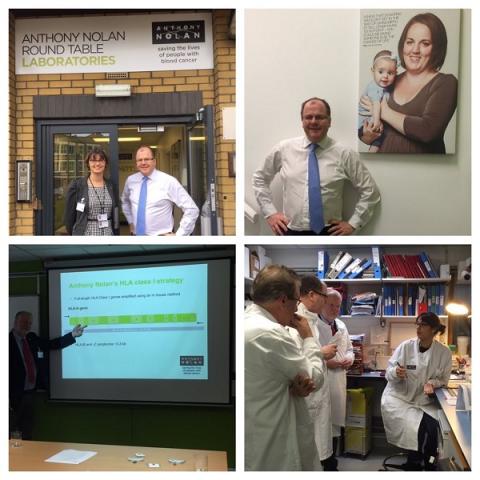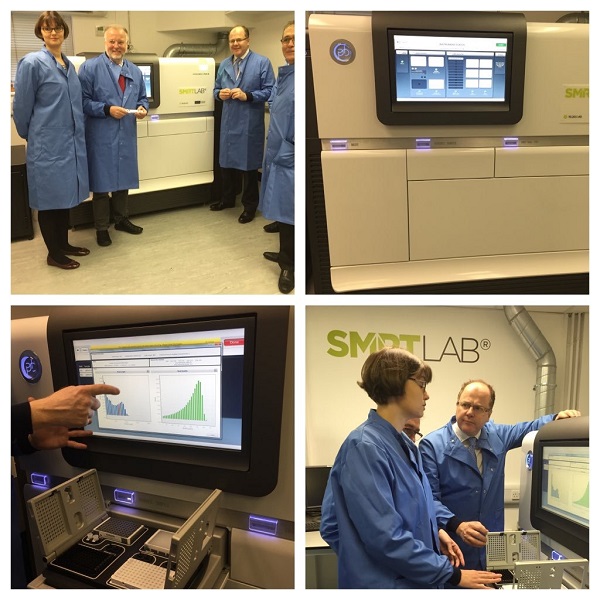On 6 January George Freeman, Life Sciences Minister visited our Research Institute to launch our new Third Generation Sequencing technology (TGS), which will improve stem cell transplant outcomes and make the best patient-donor matches ever. In today's blog, Jai Patel, Policy and Public Affairs Manager, gives us his take on an incredibly exciting day.
Our Research Institute
If you've ever walked past our Research Institute and Laboratories on the edge of the Royal Free Hospital site in Hampstead, you could be forgiven for thinking that it doesn’t look that exciting and that probably not much really happens inside. Well, that's where you are wrong!
These two small buildings are home to some of the world’s leading research on stem cell transplantation. The dedicated work carried out inside has gone on to save and improve the lives of many patients. And, most recently, it has become home to the world's newest and most advanced technology for matching stem cell donors and patients.
Third Generation Sequencing
It is this latest accolade which was marked by a visit by George Freeman MP, the UK’s Life Sciences Minister. On 6 January, he launched our new Third Generation Sequencing technology (TGS), which will improve stem cell transplant outcomes and make the best patient-donor matches ever.
The Minister’s visit started with a welcome from Henny Braund, our Chief Executive, and senior members of the Laboratory and Research teams. They gave him an overview of Anthony Nolan and our work. As a medical research charity, it was important for us to demonstrate to Mr Freeman how we're developing new treatments to create a better future for blood cancer patients, and helping to reinforce the UK’s position as a world-leader in creating life-enhancing medical technology.
He was then taken on a tour of the laboratories, where he was given a demonstration of the new technology and an explanation of how saliva and blood samples will now be ‘typed’ using Third Generation Sequencing technology. This will allow Anthony Nolan scientists to obtain very high information about a patient and donor’s tissue type by analysing the gene in one go, enabling them to make the best possible matches. It is hoped this will lead to improved survival rates post-transplant and help reduce the number of patients experiencing post-transplant complications.
The visit was the culmination of months of work by Policy and Public Affairs team to engage Mr Freeman, and it was worth it! He is one of very few government ministers who can bring experience (a previous career in life sciences) and enthusiasm to his role. He often speaks about his ministerial role as a mission, to build a better healthcare system based on new technologies. We saw this enthusiasm during discussions with him, as he was genuinely interested in our work, offering advice and encouragement. It was quite refreshing, and I got the sense that he left us with a great impression of our work and the international recognition it has achieved from the small site in north London.
Hampstead's best-kept lifesaving secret
So the next time you're in Hampstead, walking up Pond Street, take a moment to stop and look out for the two ordinary buildings which make up our Research Institute and Laboratories. Countless lives are saved in the UK and across the world because of our pioneering work.
We believe that every blood cancer patient deserves the best possible chance of receiving a successful stem cell transplant. That’s why our Destination: Cure report calls for Government support and investment in lifesaving scientific research into the factors that affect transplant outcomes.
Interested in helping to fund our lifesaving research? Find out more here:


